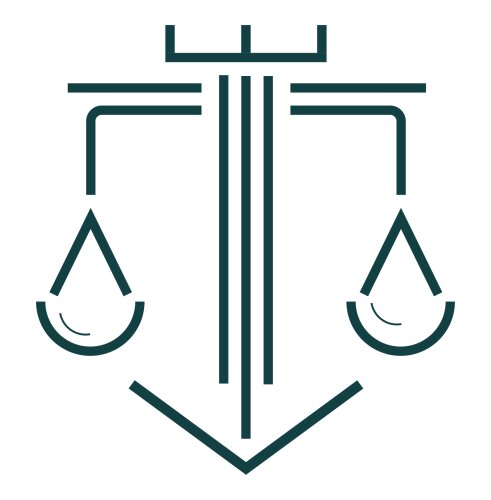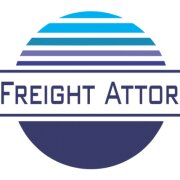About Antitrust Law in Nigeria
Antitrust law in Nigeria, often referred to as competition law, aims to promote fair competition and protect consumers from monopolistic practices. The primary objective is to ensure that markets operate efficiently so that consumers benefit from a variety of choices and fair pricing. The cornerstone of these laws is the Federal Competition and Consumer Protection Act (FCCPA) of 2018, which established the Federal Competition and Consumer Protection Commission (FCCPC) tasked with overseeing and enforcing competition laws in the country.
Why You May Need a Lawyer
There are several situations where you may require legal assistance in Antitrust matters in Nigeria. These include:
- Merger and Acquisition Approvals: If your business is considering a merger or acquisition, you must comply with FCCPC regulations to ensure that the new entity doesn't stifle competition.
- Allegations of Anti-competitive Conduct: If your business is accused of price-fixing, market allocation, or abusive strategies to limit competition, you'll need legal help.
- Understanding Compliance: Navigating the complex landscape of antitrust regulations requires professional guidance to prevent violations.
- Lodging Complaints: If you suspect anti-competitive behavior from another business, a lawyer can help you make a formal complaint.
- Legal Defense: If your business is facing an antitrust lawsuit, robust legal representation is necessary to defend against the charges.
Local Laws Overview
The Federal Competition and Consumer Protection Act is the main legal framework governing antitrust issues in Nigeria. Key aspects include:
- Prohibition of Restrictive Agreements: Any agreement that limits competition is considered illegal unless specifically exempted.
- Control of Abuse of Dominance: Dominant companies are prohibited from engaging in activities that exploit their market position.
- Regulation of Mergers: Any merger that may substantially lessen competition in a market must be approved by the FCCPC.
- Consumer Protection: Businesses must not engage in practices that unfairly take advantage of consumers, such as false advertising or deceptive selling.
- Penalties: Violations of the Act can lead to substantial fines, sanctions, and mandates to alter business practices to restore competitive conditions.
Frequently Asked Questions
What is the role of the FCCPC?
The Federal Competition and Consumer Protection Commission enforces the FCCPA, ensuring consumer rights and regulating competition.
When is a merger prohibited in Nigeria?
Mergers are prohibited if they significantly reduce or harm competition in the marketplace unless justified by public interest.
Can I file a complaint regarding anti-competitive practices as an individual?
Yes, individuals can file complaints with the FCCPC if they suspect anti-competitive practices.
What constitutes an abuse of dominance?
Abuse of dominance includes unfair pricing, limiting production, or imposing unjust conditions on business partners or customers.
Are there exemptions to anti-competitive agreements?
Yes, certain agreements that provide technological, economic, or other benefits may be exempted by the FCCPC.
What penalties can businesses face for violating antitrust laws?
Penalties include fines, orders to cease anti-competitive practices, and potentially altering business operations or structure.
How does antitrust law benefit consumers?
Antitrust laws protect consumers from monopolistic practices, ensuring fair prices, diverse choices, and enhanced quality of goods and services.
Is it necessary to consult a lawyer before a merger?
Yes, consulting a lawyer is advisable to ensure compliance with FCCPC regulations and avoid penalties.
What should I do if I'm accused of violating antitrust laws?
Consult with an experienced antitrust lawyer to understand the charges and develop a defense strategy.
Are foreign companies subject to Nigerian antitrust laws?
Yes, if they conduct business in Nigeria or affect the Nigerian market, they must comply with local antitrust laws.
Additional Resources
Several resources can help with understanding and navigating antitrust laws in Nigeria. Consider the following:
- Federal Competition and Consumer Protection Commission (FCCPC): This is the primary body for competition regulation and consumer protection.
- Nigerian Bar Association (NBA): Offers resources and lawyer referrals specialized in antitrust law.
- Trade Associations: Various trade associations may provide guidelines and assistance related to competition compliance.
- Business Advisory Firms: Assist businesses in understanding and implementing compliance strategies.
- Legal Publications and Journals: Provide insights and updates on developments in antitrust law.
Next Steps
If you need legal assistance with antitrust matters in Nigeria, consider the following steps:
- Consult With a Lawyer: Seek advice from a lawyer specializing in antitrust law to understand your situation's specifics.
- Gather Documentation: Assemble relevant documents related to the case, such as business records, agreements, and communications.
- Stay Informed: Keep abreast of updates and changes in Nigerian antitrust regulations to ensure ongoing compliance.
- Engage with Regulatory Bodies: Directly contact FCCPC or other relevant bodies for guidance and clarification.
- Follow Legal Proceedings: If involved in legal proceedings, closely follow your lawyer’s guidance for the best possible outcome.
Lawzana helps you find the best lawyers and law firms in Nigeria through a curated and pre-screened list of qualified legal professionals. Our platform offers rankings and detailed profiles of attorneys and law firms, allowing you to compare based on practice areas, including Antitrust, experience, and client feedback.
Each profile includes a description of the firm's areas of practice, client reviews, team members and partners, year of establishment, spoken languages, office locations, contact information, social media presence, and any published articles or resources. Most firms on our platform speak English and are experienced in both local and international legal matters.
Get a quote from top-rated law firms in Nigeria — quickly, securely, and without unnecessary hassle.
Disclaimer:
The information provided on this page is for general informational purposes only and does not constitute legal advice. While we strive to ensure the accuracy and relevance of the content, legal information may change over time, and interpretations of the law can vary. You should always consult with a qualified legal professional for advice specific to your situation.
We disclaim all liability for actions taken or not taken based on the content of this page. If you believe any information is incorrect or outdated, please contact us, and we will review and update it where appropriate.















